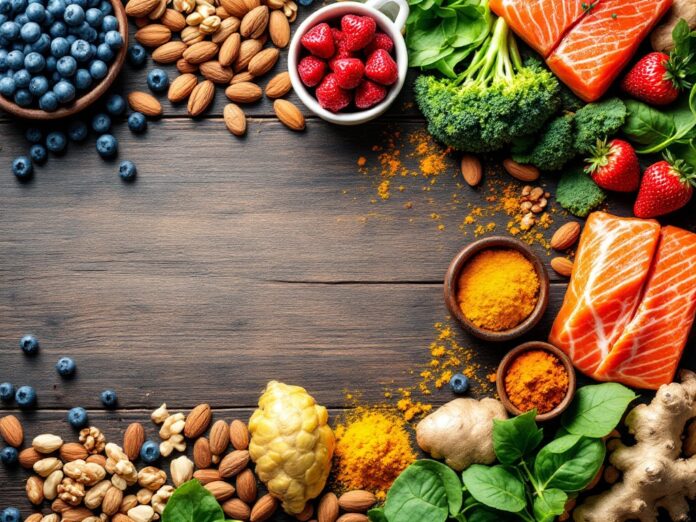Anti-Inflammatory Diet for Recovery
Athletes constantly push their bodies to the limit, which can lead to inflammation and prolonged recovery times. An anti-inflammatory diet can play a crucial role in promoting faster recovery and maintaining overall health. This article delves into the benefits of an anti-inflammatory diet, highlighting essential foods and strategies that athletes can incorporate to reduce inflammation and enhance their recovery process.
Understanding Inflammation and Its Impact
Inflammation is the body’s natural response to injury or stress, but chronic inflammation can hinder athletic performance and prolong recovery times. By adopting an anti-inflammatory diet, athletes can help reduce inflammation, support their immune system, and improve overall well-being.
The Science Behind Anti-Inflammatory Diets
Research indicates that certain foods can help reduce inflammation and promote recovery. These foods are rich in antioxidants, omega-3 fatty acids, and other nutrients that combat inflammation at the cellular level source.
See Related Article: Carb loading plan for endurance athletes
Key Anti-Inflammatory Foods for Athletes
- Fatty Fish: Salmon, mackerel, and sardines are high in omega-3 fatty acids, which have potent anti-inflammatory effects. Omega-3s can help reduce muscle soreness and support joint health.
- Leafy Greens: Spinach, kale, and Swiss chard are rich in antioxidants and vitamins that help combat inflammation. These greens are also high in fiber, promoting digestive health.
- Berries: Blueberries, strawberries, and raspberries are packed with antioxidants known as flavonoids, which have been shown to reduce inflammation and oxidative stress.
- Nuts and Seeds: Almonds, walnuts, and flaxseeds provide healthy fats and antioxidants that support anti-inflammatory processes in the body.
- Turmeric and Ginger: These spices contain curcumin and gingerol, compounds with strong anti-inflammatory and antioxidant properties. Adding them to meals can enhance flavor and promote recovery.
- Olive Oil: Extra virgin olive oil is rich in oleocanthal, a compound with anti-inflammatory effects similar to those of ibuprofen. It’s an excellent choice for cooking and dressings.
Incorporating Anti-Inflammatory Foods into Your Diet
Creating a meal plan that includes these foods can help athletes manage inflammation and speed up recovery. Here’s a sample meal plan:
- Breakfast: Smoothie with spinach, blueberries, flaxseeds, and almond milk
- Lunch: Grilled salmon salad with mixed greens, cherry tomatoes, and olive oil dressing
- Snack: Handful of walnuts and a piece of dark chocolate
- Dinner: Stir-fried tofu with turmeric, ginger, and a side of quinoa
Additional Tips for Reducing Inflammation
- Stay Hydrated: Adequate hydration is essential for maintaining healthy cellular function and reducing inflammation.
- Limit Processed Foods: Processed foods can contribute to inflammation, so focus on whole, nutrient-dense options.
- Get Adequate Sleep: Quality sleep supports the body’s natural recovery processes and helps reduce inflammation.
Conclusion
An anti-inflammatory diet is a powerful tool for athletes looking to enhance their recovery and maintain peak performance. By incorporating foods rich in omega-3s, antioxidants, and other anti-inflammatory compounds, athletes can support their body’s natural healing processes and reduce inflammation. Remember, a balanced diet combined with proper hydration and rest is key to achieving optimal results.
